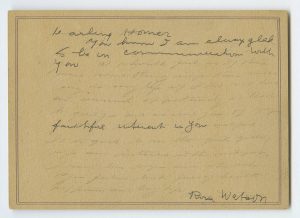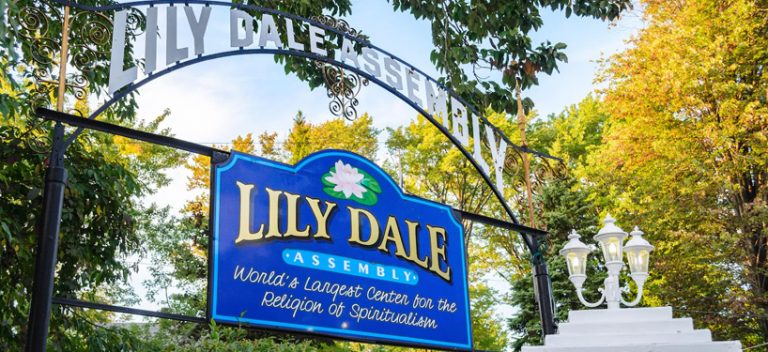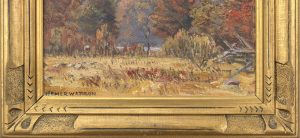Each year, thousands of tourists flock to a small hamlet in New York with the hopes of witnessing something supernatural. Since its founding in 1879, the spiritualist settlement of Lily Dale – the centre of American Spiritualism – has been home to practiced mediums and the pre-eminent place to go for spiritual healing ceremonies, lectures on otherworldly phenomena, and communication with the departed.
Spiritualism as a movement has a rich history with many moving parts and a myriad of contributing figures, but its central philosophy has remained consistent over its long history: life continues beyond death in a spirit world, and it is possible to communicate with spirits through a medium. For the last century or so, Lily Dale has been one of the best places to do that.
Homer Watson certainly thought so. We know Watson visited Lily Dale at least once in his life, and it’s likely he visited on several other occasions. Although he had been interested in Spiritualism from a young age, this interest was amplified after the death of his wife Roxa. When Watson visited Lily Dale, it was considered something like a “summer camp.” Visitors could frolic on the beach just as easily as they might sit in on a séance, though it was the Spiritualist practices that primarily attracted them to the town. At this time, the camp consisted of several hundred cottages, indoor and outdoor meeting places, a hotel, a store, a post office, a library, athletic fields, and a fire department – not to mention the many mediums who called the camp home.
The ways in which Lily Dale’s mediums spoke with the dead were many, as were the means by which a spirit might manifest. Aside from the standard séance, spirits could be channeled through “automated writing,” also known as spirit writing or psychography. Spirit photography was also a popular practice, where the deceased could be seen as ghostly figures in the background of images. Another interesting method was the use of spirit trumpets. These metal cones would allegedly float and emit voices.

In 1949, all physical manifestations of spirits were banned in Lily Dale in order to prevent the increased number of frauds circulating at the time from affecting the integrity of spiritualist practice in the town. Despite the fall in popularity of Spiritualism, Lily Dale remains well-visited to this day, and many visitors make the journey to the small town to participate in the spiritualist services following in the footsteps of Homer Watson.


















